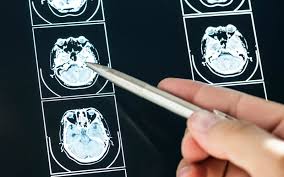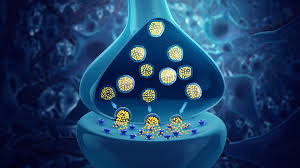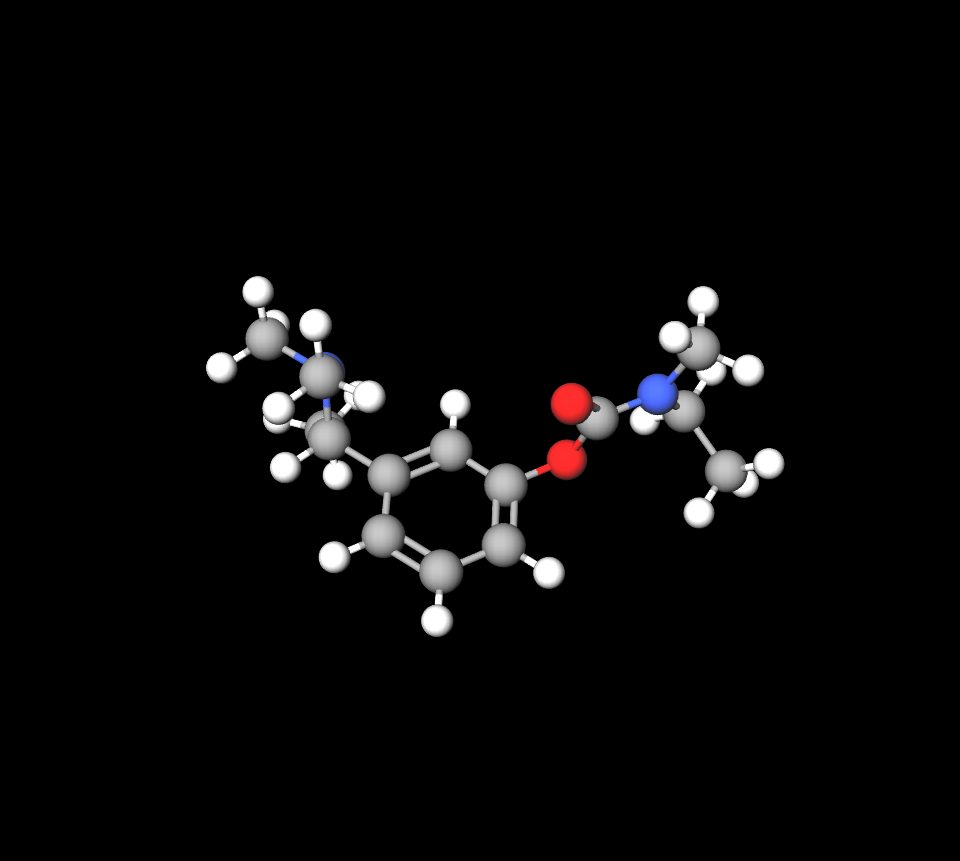Exelon Oral Solution
- 1. Introduction
- 2. Uses of Exelon Oral Solution
- 3. How Exelon Oral Solution Works
- 4. Rivastigmine dose and Administration
- 5. Composition of Exelon Oral Solution
- 6. Rivastigmine side effects
- 7. Rivastigmine warnings and Contraindications
- 8. Precautions for Special Populations
- 9. Rivastigmine interactions
- 10. Overdosage
- 11. Storage and Handling
- 12. Handling Precautions
1. Introduction
Overview of Exelon Oral Solution
The Exelon Oral Solution consists of rivastigmine, a cholinesterase inhibitor, in a form tailored for those needing a different option from capsules or patches for accurate dosing and simple use. This liquid variation proves useful for patients facing challenges with swallowing.
Importance in Treating Cognitive Disorders
As Alzheimer's disease and Parkinson's disease dementia pose challenges to healthcare worldwide, Exelon Oral Solution provides a method to slow down the advancement of these conditions. By boosting function, it tackles issues like memory loss and confusion, ultimately enhancing the quality of life for individuals affected by these cognitive disorders.
Regulatory Approval and Availability
Exelon Liquid Solution has been approved by regulatory authorities, like the FDA and EMA, to address particular cognitive issues. It's easily accessible in different markets to cater to patients worldwide.
2. Uses of Exelon Oral Solution
Treatment of Mild to Moderate Alzheimerâs Disease
Management of Parkinsonâs Disease Dementia
Off-Label Uses
- Lewy Body Dementia: Effective in reducing cognitive deficits and psychiatric symptoms.
- Vascular Dementia: Improves mental clarity in patients with vascular-related cognitive impairments.
- Traumatic Brain Injury: Emerging evidence suggests its potential role in cognitive recovery post-injury.

3. How Exelon Oral Solution Works
Rivastigmine mechanism of action
Cholinesterase Inhibition
Exelon Oral Solution works by blocking cholinesterase enzymes that break down acetylcholine in the body. This blocking helps to boost the supply of acetylcholine, which is important for memory and learning in the brain.
Enhancement of Cognitive Function
The solution provided maintains the levels of acetylcholine in the brain's neurotransmitter system intact and functioning efficiently, enhancing functions and alleviating symptoms associated with disorders linked to dementia.

Onset of Action and Duration of Effect
The effects generally appear in a matter of weeks. Continued use provides advantages, including cognitive enhancement that improves steadily over time.
Rivastigmine effectiveness
Patients with mild to Alzheimer's disease generally respond well to rivastigmine treatment without experiencing significant adverse effects. It has shown positive results in enhancing cognitive function and increasing engagement in daily activities, as well as receiving positive evaluations on a global scale.
4. Rivastigmine dose and Administration
Recommended Dosage for Alzheimerâs Disease
The initial dose for Alzheimer's patients is 1.5 mg twice daily, with gradual increments based on tolerance.
Recommended Dosage for Parkinsonâs Disease Dementia
The same dosing schedule is recommended; however it is important to monitor for interactions affecting motor function.
Adjustments for Renal or Hepatic Impairment
For patients with kidney or liver problems, it's crucial to adjust the dosage to minimize any effects.
Dosage Forms and Strengths
Exelon Oral Solution comes in concentrations of 2 mg/mL, allowing you to adjust the dosage as needed.
Guidelines for Switching from Capsules or Patches
Switching to a medication may necessitate guidance to establish the appropriate dosage and prevent the risk of overdosing.
5. Composition of Exelon Oral Solution
Active Ingredient: Rivastigmine
The compound rivastigmine plays a role in its positive effects by blocking both acetylcholinesterase and butyrylcholinesterase enzymes directly.

Inactive Ingredients and Excipients
The ingredients consist of water along with citric acid and sodium benzoate to maintain stability and enhance taste.
Comparison with Other Formulations
Unlike capsules or patches, the oral solution allows precise dosing adjustments, enhancing patient compliance.
Rivastigmine vs donepezil
Both Rivastigmine and Donepezil exhibited impacts on behavioral assessments. However, Rivastigmine had an edge in terms of activities related to daily living and overall functioning.
6. Rivastigmine side effects
Common Side Effects
- Gastrointestinal Symptoms: Nausea, vomiting, and diarrhea are frequent complaints.
- Neurological Symptoms: Patients may experience headaches or dizziness.
- Cardiovascular Symptoms: Rivastigmine bradycardia and mild blood pressure fluctuations are possible.

Rare and Serious Side Effects
- Bradycardia: Severe cases may necessitate medical intervention.
- Severe Allergic Reactions: Symptoms such as rash and swelling require immediate care.
7. Rivastigmine warnings and Contraindications
Rivastigmine contraindications
Patients allergic to rivastigmine or any of its components should avoid using Exelon.
Important Warnings
Risk of Gastrointestinal Ulcers
Extended usage could worsen any existing gastrointestinal problems and may necessitate taking precautionary actions.
Exacerbation of Asthma or COPD
Patients suffering from issues should be watched closely for any signs of deterioration in their symptoms.
Situations Requiring Careful Administration
It's important to take care of individuals, pregnant women, and those with other health conditions.
Rivastigmine withdrawal symptoms
When discontinuing Rivastigmine abruptly after using it to manage dementia symptoms with its cholinesterase inhibiting properties could lead to withdrawal symptoms such as trouble focusing on tasks and sleeping well or experiencing mood swings and altered perceptions like seeing or hearing things that's not real and feeling confused along with feeling agitated and noticing a decline, in thinking abilities.
8. Precautions for Special Populations
Administration to Elderly Patients
A considerable number of individuals have prescribed Exelon Oral Solution as they form a part of the population receiving this medication due to age-related bodily changes that make them prone to experiencing negative effects like stomach issues and a slow heart rate (bradycardia). Doctors are advised to start treatment with the dose and then slowly increase it to reduce potential risks involved in the process while also ensuring regular checks of kidney and liver function for safety measures.

Administration to Pregnant Women and Nursing Mothers
Risks During Pregnancy
The safety of Exelon Oral Solution during pregnancy remains insufficiently studied. Animal studies indicate potential risks to fetal development at high doses, though human data are lacking. Prescribers should weigh the therapeutic benefits against possible teratogenic effects when considering its use in pregnant patients. It is advised to avoid use unless absolutely necessary.
Breastfeeding Considerations
The effects of Rivastigmine in breast milk have not been extensively studied yet to ensure the safety of nursing infants when their mothers are taking this medication while breastfeeding is being held as a concern due to impacts on the babys development and health; hence, it is recommended that nursing mothers either stop taking the medication or avoid breastfeeding during treatment and seek advice from a healthcare provider, for the right course of action.
Administration to Children
Exelon Oral Solution has not received approval for use in children due to the lack of established safety and effectiveness in patients. Off-label utilization should be handled with care and necessitates consultation with a specialist to carefully weigh the risks against the benefits involved.
9. Rivastigmine interactions
Interactions with Other Cholinesterase Inhibitors
Using cholinesterase inhibitors at the time can intensify the cholinergic effects and raise the risk of experiencing severe side effects, like slowed heart rate (bradycardia), excessive saliva production (salivation), and muscle weakness is not recommended at all.
Interaction with Anticholinergic Drugs
Anticholinergic medications that oppose the effects of activity can diminish the effectiveness of Exelon in treating disorders and may result in less favorable treatment outcomes requiring adjustments to medication plans to prevent any negative interactions.
Impact of Food and Alcohol
Food intake does not impact how Exelon Oral Solution is absorbed in the body; hence, it can be taken at different times as needed. However drinking alcohol might worsen side effects related to the nervous system like feeling dizzy or confused. It is recommended for patients to reduce or refrain from consuming alcohol while using this medication.
10. Overdosage
Symptoms of Overdosage
Overconsumption of the form of Exelon may lead to a crisis marked by intense feelings of nausea and vomiting muscle spasms, along with a dangerous decrease in heart rate that could be life-threatening. Patients also can encounter breathing difficulties and seizures in severe situations.
Emergency Management
It's crucial to seek help away if overdose symptoms are suspected. Treatment involves managing symptoms and giving atropine a medication that counteracts the effects of rivastigmine. Hospitalization may be necessary, for monitoring and care.
Long-Term Consequences
Extended contact, with amounts of Exelon, can result in lasting issues or heart-related problems, emphasizing the importance of prompt action to avoid permanent harm.

11. Storage and Handling
Recommended Storage Conditions
Ensure that you keep Exelon Oral Solution in a place with a room temperature between 20 °C and 25°C (68°F and 77°F). Avoid exposing it to heat or freezing conditions, and remember to keep the container closed to maintain its quality and prevent contamination.
Shelf Life and Stability
The product's expiration date is usually mentioned on the container label or packaging box. Once opened, the solution must be utilized within the manufacturer's specified timeframe to maintain its effectiveness and safety. Any change in color or appearance of cloudiness may indicate that the product has deteriorated and should be discarded promptly.
Proper Disposal Methods
Make sure not to throw any Exelon that you haven't used or has expired in the trash or, down the drain at home follow the rules in your area or take it back to a pharmacy, for proper disposal.
12. Handling Precautions
Guidelines for Caregivers
When giving Exelon Oral Solution to patients as a caregiver make sure to use doses with calibrated syringess and wear gloves to avoid skin contact, with the medicationn Particularly necessary when helping patients who have physical or cognitive limitationsns
Cleaning and Disinfection After Use
After using the solution, on utensils and surfaces it's important to clean them with soap and water. For cleanliness you can also use disinfectants afterwards. This is especially crucial in shared spaces or places, like nursing homes.
Exelon Oral Solution FAQ
- Does Exelon come in pill form?
- What is the use of Exelon tablet?
- Can rivastigmine be taken orally?
- What are the benefits of Exelon?
- How is Exelon administered?
- What is Exelon used to treat?
- Is Exelon effective?
- Can Exelon be taken without food?
- Why is rivastigmine used in parkinson's?
- Who cannot take rivastigmine?
- Where is rivastigmine metabolized?
- Rivastigmine what type of drug?
- Rivastigmine what does it do?
- Rivastigmine what to monitor?
- What rivastigmine used for?
- Rivastigmine how to take?
- Rivastigmine how long does it take to work?
- How rivastigmine works?
- Can rivastigmine cause orthostatic hypotension?
- Can rivastigmine cause confusion?
- Can rivastigmine cause hallucinations?
Does Exelon come in pill form?
Exelon hard capsules are recommended to be taken two times, alongside your morning and evening meals, at a dosage of 1.5 mg in the morning and another 1.5 mg in the evening.
What is the use of Exelon tablet?
A medication called Rivastigmine is used to help with mild dementia resulting from either Alzheimers disease or Parkinsons disease.
Can rivastigmine be taken orally?
Yes
What are the benefits of Exelon?
Exelon aids in reducing the progression of decline in individuals suffering from Alzheimer's disease while also enhancing their capacity to manage tasks effectively.
How is Exelon administered?
You should take them daily in the morning and at night, either with a meal or shortly thereafter.
What is Exelon used to treat?
Exelon is prescribed for managing mild dementia linked to Alzheimer's or Parkinsons' disease. It does not serve as a cure for these conditions.
Is Exelon effective?
Patients with dementia caused by Parkinsons' disease who were prescribed Exelon capsules experienced a 2-point increase in function compared to a 0-point drop in those who were given a placebo, initially rated at 24 points.
Can Exelon be taken without food?
Make sure to take Exelon with your meals, splitting the doses between morning and evening.
Why is rivastigmine used in parkinson's?
Rivastigmine helps in managing dementia by inhibiting the degradation of acetylcholine.
Who cannot take rivastigmine?
It's important not to use rivastigmine if you have allergies to it or medications like felbamate, meprobamate, or carisoprodol. Also, it's best to avoid taking rivastigmine if you've experienced redness, itching, or skin irritation from wearing a rivastigmine transdermal skin patch before.
Where is rivastigmine metabolized?
Brain, Liver, Intestine
Rivastigmine what type of drug?
Cholinesterase inhibitors
Rivastigmine what does it do?
Patients with Alzheimer's and Parkinsons' disease often use rivastigmine as a treatment to help manage their condition and symptoms of dementia.
Rivastigmine what to monitor?
Toxicity to the drug, while rare, should be carefully monitored.
What rivastigmine used for?
Doctors prescribe Rivastigmine to help manage the effects of mild dementia linked to Alzheimer's disease or Parkinsons' disease involving memory loss and cognitive changes.
Rivastigmine how to take?
Rivastigmine's optimal effectiveness is observed when it is consumed consistently at distributed intervals throughout the day: twice daily, once in the morning and again in the evening.
Rivastigmine how long does it take to work?
It could be around four weeks before you start to feel better from your symptoms.
How rivastigmine works?
The medication Rivastigmine functions by boosting the amounts of a brain neurotransmitter known as acetylcholine to facilitate communication among nerve cells.
Can rivastigmine cause orthostatic hypotension?
Using Rivastigmine may improve orthostatic hypotension (OH), a condition seen in individuals with Parkinsons disease dementia (PDD).
Can rivastigmine cause confusion?
Yes
Can rivastigmine cause hallucinations?
Certainly! Rivastigmine has the potential to lead to hallucinations as a side effect of its usage in treating Alzheimer's disease (AD). Hallucinations are known to manifest as a symptom in patients with moderate to AD. It can impact around 40 percent of individuals undergoing treatment.








